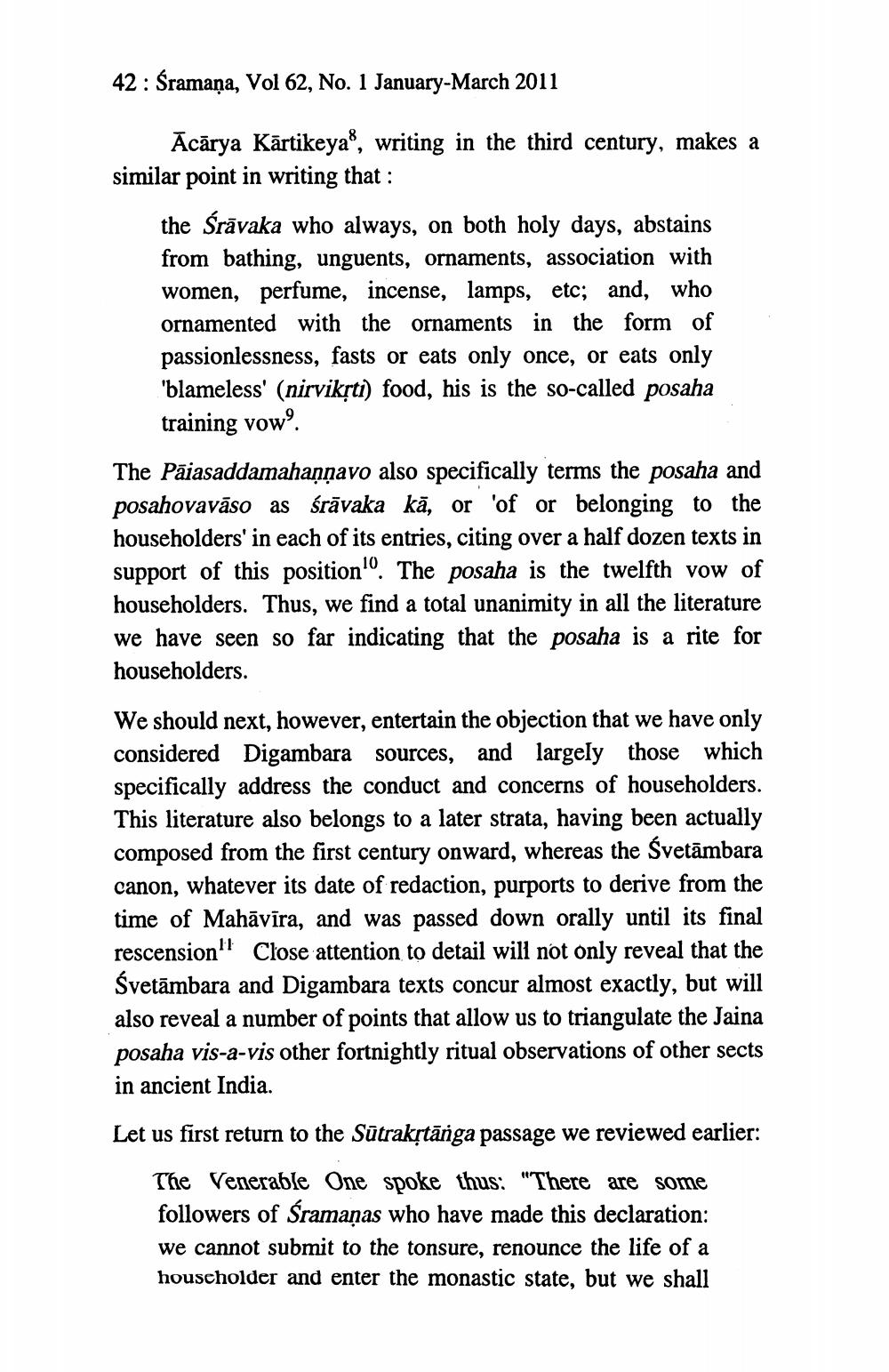________________
42: Sramaņa, Vol 62, No. 1 January March 2011
Ācārya Kārtikeya”, writing in the third century, makes a similar point in writing that :
the Srāvaka who always, on both holy days, abstains from bathing, unguents, ornaments, association with women, perfume, incense, lamps, etc; and, who ornamented with the ornaments in the form of passionlessness, fasts or eats only once, or eats only 'blameless' (nirviksti) food, his is the so-called posaha
training vowo. The Pāiasaddamahannavo also specifically terms the posaha and posahovavāso as śrāvaka kā, or 'of or belonging to the householders' in each of its entries, citing over a half dozen texts in support of this position". The posaha is the twelfth vow of householders. Thus, we find a total unanimity in all the literature we have seen so far indicating that the posaha is a rite for householders.
We should next, however, entertain the objection that we have only considered Digambara sources, and largely those which specifically address the conduct and concerns of householders. This literature also belongs to a later strata, having been actually composed from the first century onward, whereas the Svetāmbara canon, whatever its date of redaction, purports to derive from the time of Mahāvīra, and was passed down orally until its final rescension" Close attention to detail will not only reveal that the Svetāmbara and Digambara texts concur almost exactly, but will also reveal a number of points that allow us to triangulate the Jaina posaha vis-a-vis other fortnightly ritual observations of other sects in ancient India.
Let us first return to the Sūtrakrtānga passage we reviewed earlier:
The Venerable One spoke thus: "There are some followers of Sramaņas who have made this declaration: we cannot submit to the tonsure, renounce the life of a houscholder and enter the monastic state, but we shall




